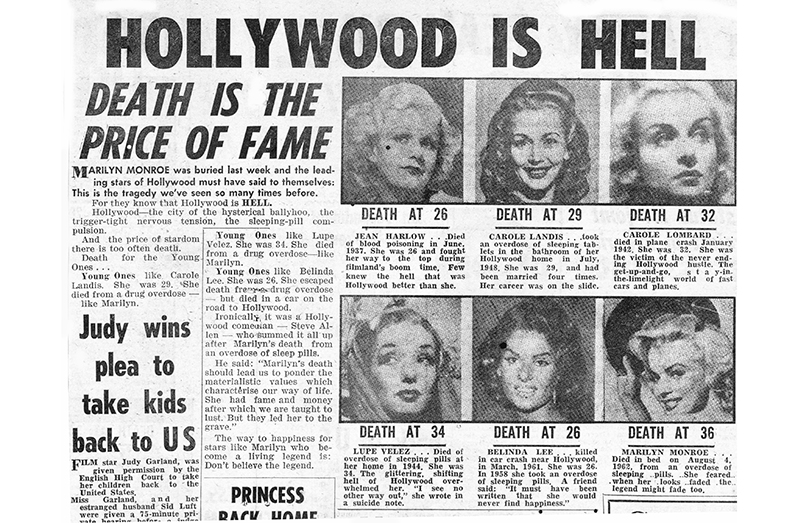THROUGH experience, I have concluded that most (but not all) of the people that may have the income, or can source it from dark corners to produce shows and other popular culture features lack any intent to reward the ‘Talent-Acts’ that they engage. This revolves around every area of the talent and creative field.
A lifetime ago, I was with a young lady when her father stopped me on Camp and Princess Streets in front of ‘Lucius Bar’ and enquired about my income hustle, which meant how I earned. We had a conversation that was not too private to the silent crew sitting on the bridge, but, satisfied, he departed. One of the brethren immediately poured out some advice, “I know he daughter; yuh girlfriend. She’s go Muslim; duh old scamp. He’s a promoter, yuh know. Ah time wid Rudy and the Roosters, he hired them, half empty the gate box, stash off, then throw down the box and seh some banna pun a 65-cc try fuh rob he. Short pay the band, now he preaching to you! Steupes!”
That was a first insight to promoters. But, without rules and penalties, the victims, on many occasions, were public. Imagine you’re young, unemployed but skilled, and two different dance promoters come to pay to advertise their dance on a cardboard poster, destined for a then- GEC line post, ready to advance you to sign-paint and nice-up. The only exception is that they’re having it on the same night, and both of them are advertising ‘Yoruba Singers’ or ‘Mischievous Guys’ again, on the same night at two different locations, which is not possible. Since you’re not the promoter or his clueless patron, you do the job, get paid, and learn. The thing with those times was the gate men used to be no-nonsense, tough, street-wise brethren, and with no legal rules on promoter conduct, ‘game done’.
Today, it’s much different; the talent recruited is on a different stage. A young songwriter who has spent time composing his song, and may even have a melody that’s original and not a cover melody needs to be treated differently. But, from observation and experience, I’ve concluded it’s not just dishonesty, though that plays a tremendous role. In some cases, it’s a pathological condition of envy of talent that manifests a need to humble, and, if possible, ill-treat these talents in the most perverted way, inculcating a negative cultural practice of paying a vicious toll to cross the bridge to possible fame, accompanied by irrevocable psychological damage.
 Hollywood would be a relative example of the mental collapse of talents that would lead to suicide. This is not only exclusive to Hollywood, but also to the inner workings of the entertainment business and the battle with pharmaceuticals, legal and illegal, that have led to the untimely deaths of superior talents like Michael Jackson, etc. The movie, ‘With eyes wide shut’ brought a glimpse through screen drama to the rumours we have all heard about occult simulations and occult practices. Recent talk of disgusting indulgences, etc. have led to weird dehumanising treatment that may have caused suicide with individuals. Wakening and recollecting experiences that are narrated in the text of occult and cult-disguised formal religious organised entities, shame, and self-guilt is a powerful formula to wield against a person with any self-value. Thus, this demoralising format, more likely, with a minority of such victims, that may have been induced through veiled, drugged food or drinks.
Hollywood would be a relative example of the mental collapse of talents that would lead to suicide. This is not only exclusive to Hollywood, but also to the inner workings of the entertainment business and the battle with pharmaceuticals, legal and illegal, that have led to the untimely deaths of superior talents like Michael Jackson, etc. The movie, ‘With eyes wide shut’ brought a glimpse through screen drama to the rumours we have all heard about occult simulations and occult practices. Recent talk of disgusting indulgences, etc. have led to weird dehumanising treatment that may have caused suicide with individuals. Wakening and recollecting experiences that are narrated in the text of occult and cult-disguised formal religious organised entities, shame, and self-guilt is a powerful formula to wield against a person with any self-value. Thus, this demoralising format, more likely, with a minority of such victims, that may have been induced through veiled, drugged food or drinks.
The latter is now common within our borders. What kind of people does such things? No doubt, what we called a ‘Weirdo’ in the 70s was how we described people who did stuff like that back in the day. A ‘weirdo’ was often a person who was out of balance with our sense of normal, like a con-man gang rapist, or creatures who always didn’t like this or that person, and couldn’t tell you why we never understood the kind of envy that could embrace a person with a smile, yet despise or hate them at the same time, yes, we were naive. So we called them weirdoes. We had concluded that somebody had done something to them as a child that had screwed them up. The fact is, some people are born that way.
Talent is especially vulnerable to ‘Users’. I once managed two singers for a colleague. They came to me on the pretext that they were asked to do a show. I instructed them that it would be necessary to let me talk to the actual promoter, and have him sign a performance contract rather than one of his hangers-on. They ignored me, went and performed and didn’t get paid, came back to me with long faces, and I told them, “It was your call; I’m out of it, you’re big boys now, and that was lesson #1.” The 1962 newspaper clipping featured in this article is one I inherited from an album of tits and tots from a relative. It tells a chapter, of many tales, with more to come.



.jpg)










